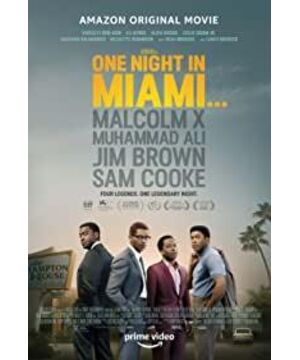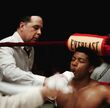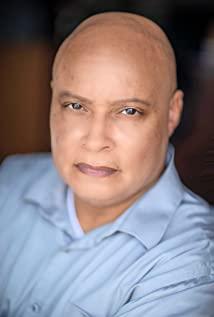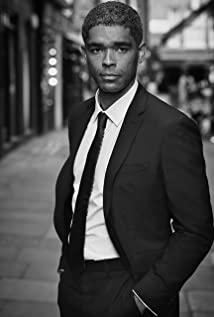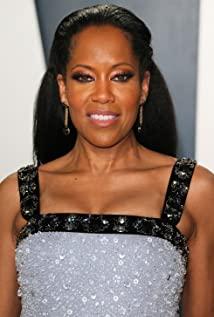The movie condensed a glorious page of the 1964 black civil rights movement in one night, placing four completely different types of black representatives in the same cramped room and forced to face their most essential identity dilemma. As a 10-year-old Sam Cooke fan, it's really exciting to see this glorious period being revealed. While I think Sam Cooke's awakening in real history is more spontaneous, the unavoidable upheaval and humidity of the environment shown in the film is indeed a more essential situation.
The opening begins with several discriminatory scenes, while explaining the identities and personalities of the four protagonists. The discrimination scenes are arranged in order from public to private, the discrimination content is arranged in order from rude to civilized, and the transition is made by intervening in advance through the sound effect of the next scene.
The first to appear was the boxing champion Ali, who was still called Kassers Marcellus Clay Jr. at that time. The discrimination in the fully open boxing ring came from all directions, and it was presented with a surround sound rather than a specific image. Ali's own speaking style is very accented. Some points of view mention that he is a pioneer of rap and even released an album. The restoration of this play is quite in place, after all, it is humorous, boastful, and belittles its opponents.
The second appearance was singer Sam Cook, and the face-to-face performance stage discrimination came from the audience in front of him. There is a blatantly discriminatory quarrel in the performance, the camera slowly defocusing the conversation between the two white people of the organizer and the agent, and Sam Cook's painful and wonderful listening reaction process becomes the focus of the picture facing the audience. There is also a segment after the show where Sam Cook gets mad at the white agent, who transfers the discrimination of white people against himself to the relatively innocent and vulnerable.
The third came out was legendary football player Jim Brown, driving to visit friends. The lens gets darker and darker from outside to inside. This friend may have been the most non-discriminatory group of people at that time, but it was their non-discriminatory discrimination that was the most structural, and the very tall door that seemed to be open was the most closed door. Yes, and the king of the court at 1.88 meters looks so small. This paragraph has a very heavy "Escape from the Dead Town"-style thriller.
The fourth appearance is the black civil rights leader Malcolm X, who said in the news: "What's good news for the sheep, that might be bad news for the wolf." Bad news for wolves.) Sam Cook's later album A Change Is Gonna Come was called Ain't That Good News. The news screen turns to a couple conversation in Malcolm X's own home. This one is no specific discrimination, showing the embarrassment of a pure civil rights fighter, or the discrimination of the absence is that they are always present in the dialogue. The scene ends with Malcolm X using Ali as his sporting weapon and the title screen of Ali in the water.
Then came the important time points of the film. On February 25, 1964, a dialogue scene of Ali's glittering swimming pool and a dialogue scene of Sam Cooke at the luxury hotel Fontainebleau, both discuss the respect that money buys and class. Then Ali won the championship and basically started the most important indoor drama "One Night in Miami".
Sam Cook first arrived at the Hampton Inn in the black area. He took out his guitar in his room to entertain himself, and it can be seen that he came with a party attitude. Then others came, and Malcolm X kept bringing the conversation to serious civil rights issues. Essentially this is a conflict between moderates and radicals. The first conflict ended with Malcolm X getting out of the car to get the camera. Sam Cook has a song called "Another Saturday Night", which shows his attitude towards consuming the night.
After Malcolm X went out, everyone broke their mouths but tried to calm down the atmosphere. They brought out Sam Cook's hoard of wine, and Ali began his last drink. It can be seen that the other two also agree that tonight is the party. When a guard knocked on the door, Ali thought it was Malcolm X who was hoarding wine. In the end, the dialogue with the guards settled on the discussion of religious significance. The guards felt that there was no difference between them and gangsters.
Then, Jim Brown mentioned that he wanted to act in a movie. He knew that he was only a gladiator, not a ruler. There was no essential difference between an athlete and an actor. But Ali felt that there was a difference, and there were lines in which he felt he surpassed Alexander the Great before. The movie mentioned should be the western "Fighting Guanshan".
Malcolm X found that someone was following him back to the room to check if there were bugs or something, and then the four of them came to the rooftop just as fireworks were being set off. Ali felt that the fireworks were set for him, and it was indeed possible that he had just won the championship, but even so, he could only watch from a distance because of his black identity. Malcolm X brought the topic to a serious point again, saying that he felt the omen of death. Ali tried to lighten the mood a few times, but the conversation was always quick to turn upside down over the conflict between Sam Cook and Malcolm X. Sam Cook is fighting for more modest business advancements, Malcolm X is fighting for more aggressive feuds.
In the rooftop conversation, Sam Cooke mentioned that he was going to perform in Copa, possibly referring to the live album "Sam Cooke at the Copa". The show featured a cover of "Blowin' in the Wind" by Sam Cook.
Back in the room scene, Malcolm X played two Sam Cook songs from Sam Cook's album "Mr. Soul", "You Send Me" and "For Sentimental Reasons", to demonstrate his songs. to please white people. There is an obvious bug here, the song "You Send Me" is not included in this album, maybe because the action of taking another vinyl is not concise enough. Although it seems that Malcolm X said that he looked down on Sam Cook's songs, but he bought his albums, and later mentioned that he went to see his performances many times. In fact, he is actually a true love fan.
Malcolm X's accusation that Sam Cook's music was taken from black people to please white people is an accusation of everything Sam Cook has fought, so here's the most heated argument in the film. Ali's continued attempts to calm the atmosphere failed, and Jim Brown's attempt to interrupt Malcolm X also failed to hide in the toilet.
Here is some additional information. Sam Cook first made his debut by writing and singing gospel songs. The specific style can be heard in his song "Jesus Gave Me Water" when he was in the gospel group Soul Stirrers. Later, I crossed over to pop music, and you can listen to one of his classic songs "Cupid" - Cupid is also a kind of god, replace her with God, this song is basically established.
But Sam Cooke tried to convince Malcolm X with his extensive business experience, citing the Rolling Stones cover of "It's All Over Now" as an example. Yet Malcolm X played Bob Dylan's "Blowin' in the Wind" and said it was supposed to be the song Sam Cook should have written, and why was it written by a white man and more than all yours Song business performance should be good. Sam Cook slammed out the door without a word, essentially declaring his defeat of the debate.
Because of the large amount of information in this paragraph, I will add two digressions: 1. The story of "It's All Over Now" is almost the same as what is said in the movie, and some contents of "British Invasion" are mentioned. The essence of rock music is inspired by black blues music, and it also started from black singers such as Chuck Berry. Elvis made these more white transformations. And "British Invasion" is a group of British rock musicians that were exported to the United States in reverse and dominated the charts. The starting point of all this was The Beatles. Each of their early albums basically had a few songs covered from black music. Singer Little Richard was also the idol of frontman Paul McCourtney in his youth. 2. A study found that "Blowin' in the Wind" was inspired by black chants, and rhetorically incorporated the style of the Bible, especially the use of rhetorical questions in the lyrics. One can relate to Malcolm X's emphasis on lyrics in the above film.
Ali continues to play the peacemaker chasing out the door to find Sam Cook while a conversation between Malcolm X and Jim Brown begins in the room. These lines from Jim Brown are the most profound in the whole film. He watched for so long and finally began to express, only to find that he saw it the most clearly, he understood both the cruelty of the status quo and the importance of Sam Cook's choice. This conversation ended with Malcolm X choked up in the end, and Jim Brown was able to win back a victory for Sam Cook.
"What's going on?" I don't know if the writer is quoting Marvin Gaye's album "What's Going On", but this question is indeed a questioning of black groups of all times or American society. This question is repeated by Sam Cooke at the end of the film.
After Ali persuaded Sam Cook back, Malcolm X recalled a Sam Cook performance he once saw in Boston. It was Jackie Wilson who unplugged Sam Cook's microphone to sing "You Send Me", one of the important figures in the development of soul music in R&B. His previous performance was "Lonely Teardrops," which peaked at No. 1 on the Billboard R&B chart and No. 7 on the overall chart. It was one of his most important songs, and he was dizzy while performing this song before his death. down. Afterwards, Sam Cooke led the audience to perform "Chain Gang" on the spot, as if returning to the state of an anthem. The song, inspired by his encounter with a gang of prisoners on the side of the highway while on tour, peaked at No. 2 on the Billboard overall chart. This is one of the best re-enactments of this movie in my opinion.
As an aside, Sam Cooke's live performance is phenomenal, and you can listen to his live album Live at the Harlem Square Club, 1963. This 1963 live recording was shelved for more than 20 years because the record company felt it was too loud and jarring, and it was not rediscovered and released until 1985. It was a record of the excellent atmosphere of the black music scene at the time, and it was confused to some extent. Religious experiences and live performances, one of my personal top ten albums.
Although Ali and Malcolm X had an emotional quarrel over their beliefs, when they heard that there were reporters outside, Ali gladly invited him to share their beliefs. In the room, Sam Cook confided to Jim Brown that he had heard "Blowin' in the Wind" and had been inspired to write it. The entire "One Night in Miami" segment begins when Ali wins the championship and ends when he announces his Muslim identity to reporters. The film then explained the development of each person afterward. Sam Cooke wrote one of his best songs, "A Change Is Gonna Come," Ali really became Ali, Jim Brown was really an actor after a few seasons, and Malcolm X's house burned down He later wrote his autobiography.
Here is another bug. The movie explains that "One Night in Miami" took place on February 25, 1964. Sam Cook's "A Change Is Gonna Come" was conceived in 1963, although it was indeed influenced by "Blowin" ' in the Wind' had the right influence, but it was released before 'One Night in Miami'. The only live version of the song was even performed on a TV show before its release. Then Sam Cooke felt that the song was too death-like, and vowed not to perform the live version of the song again, and fate did not give him the chance to perform his classic again. Even the only live version is now lost, but a recording of Basin Street Blues, performed on the same day, is still available. This is also one of my favorite points of this film. Although it does not restore the moment, it at least gives us an emotional imagination about the lost dream.
Maybe "A Change Is Gonna Come" was also a harbinger of some kind of death for Sam Cook, who was shot and killed by the hotel manager of a Los Angeles motel on December 11, 1964, in a controversial self-defense case. Before Malcolm X, the movie did not account for the death of Sam Cook. He wrote in the lyrics that he was afraid of death, while foreshadowing a change to come. But he died with no chance to see a real change coming. And this song has forever become the representative song of the black civil rights movement.
"This is the time to sacrifice, and if I were to sacrifice, it would be for the Brotherhood, which alone can save this country." Malcolm X was killed two days after he wrote this, at this time About a year away from "One Night in Miami."
It's been a long, a long time coming But I know a change gonna come ——Sam Cooke "A Change Is Gonna Come"
After 57 years, will change really come?
View more about One Night in Miami... reviews


